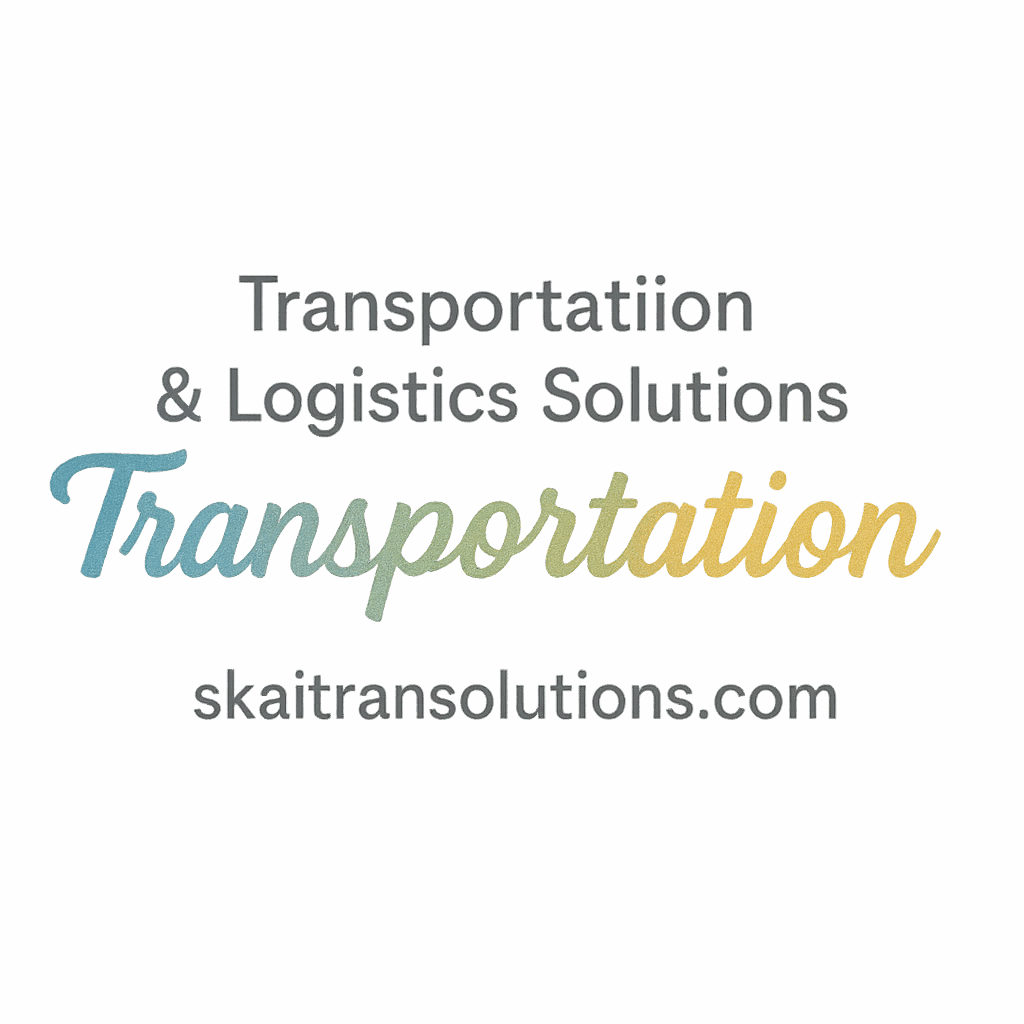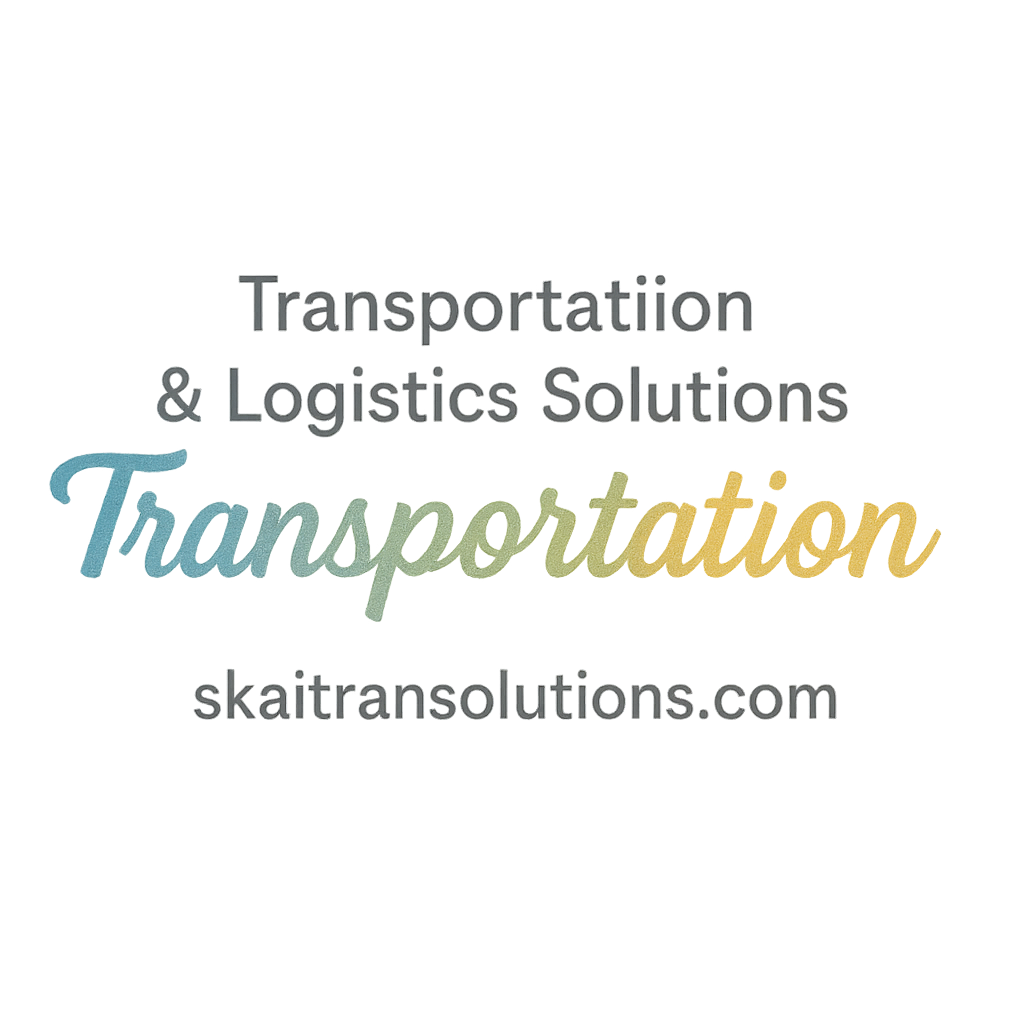Introduction: The Ripple Effect of Global Events on Transportation
Global events—whether they are political shifts, economic crises, pandemics, or natural disasters—have far-reaching consequences across all industries, and transportation is no exception. In today’s interconnected world, the movement of goods, services, and people is intricately linked to global dynamics. Even a small change in one part of the globe can send ripples through the entire transportation network.
But how exactly do global events affect transportation solutions? Let’s dive into the 7 major ways these events have reshaped how we move and deliver goods.
1. Supply Chain Disruptions
How Global Events Create Bottlenecks
Global events, especially those that disrupt the economy or international trade, can cause massive bottlenecks in the supply chain. The closure of factories, restrictions on shipping, and sudden surges in demand create a perfect storm for delays. Consider the COVID-19 pandemic, where factories shut down and shipping lines were disrupted, leading to delays in manufacturing and deliveries. These disruptions often ripple throughout the transportation sector, making it difficult to meet deadlines and manage inventory.
Real-World Examples
In 2021, the Ever Given ship blocking the Suez Canal caused a chain reaction of delays that lasted for weeks. This is just one example of how even a single logistical mishap can have global consequences. Such disruptions highlight the importance of flexibility in transportation solutions and the need to adapt quickly to unexpected challenges. For more insights on logistics and supply chain solutions, check out Logistics & Supply Chain Solutions.
2. Changing Consumer Demand
Impact of Shifting Trends on Transportation
Global events can significantly shift consumer behavior. For example, during the pandemic, there was a massive surge in e-commerce as more people opted to shop from home. This change directly impacted the transportation sector, particularly in terms of last-mile delivery. Companies had to rapidly scale up their delivery solutions to meet increased demand.
Navigating the Surge in Demand
The surge in consumer demand often leads to pressure on transportation providers to keep up. In response, companies are increasingly turning to tech-driven solutions, like automated warehouses and real-time tracking systems, to streamline operations and improve efficiency. These innovations help transportation solutions stay ahead of fluctuating demand curves. Learn more about how technology innovation is shaping the transportation industry at Transportation Technology Innovation.
3. Regulatory Changes and Compliance
How Global Policies Affect Transportation
Global events often trigger regulatory changes that affect how transportation solutions are designed and implemented. For instance, international trade agreements, tariffs, or environmental laws can impact how goods are moved across borders. Governments might impose new safety or emission standards following environmental crises or natural disasters, forcing companies to rethink their fleets or modes of transportation.
Adapting to New Compliance Requirements
Adapting to these changes can be time-consuming and costly. Transportation companies need to stay ahead of regulatory shifts to avoid fines and stay competitive. Companies in the logistics sector must invest in training, technology, and new fleets that comply with changing rules, which is an expensive and sometimes complicated process. For more details on compliance, check out Compliance.

4. Technological Innovations and Global Events
How Global Events Drive Tech Adoption
In some cases, global events act as a catalyst for adopting new technologies. The urgency created by disruptions such as the COVID-19 pandemic spurred the adoption of automation, robotics, and artificial intelligence (AI) in transportation. These technologies were embraced to ensure the continuity of services during lockdowns and to reduce human contact.
The Role of Autonomous Vehicles
Autonomous vehicles are one of the most promising innovations in the transportation sector. Global events like the push for reducing carbon footprints and the challenges faced by human-driven trucks during labor shortages have accelerated the development and deployment of autonomous vehicles. These vehicles have the potential to revolutionize how goods are transported, making it safer, faster, and more efficient. Explore more about autonomous technology at Autonomous.
5. Safety and Security Measures
Global Events and the Need for Enhanced Security
From natural disasters to political unrest, global events often require transportation companies to bolster their safety and security protocols. Events like terrorism or civil unrest have led to tighter security checks and more stringent regulations in transportation hubs like airports, seaports, and cargo terminals.
Impact of Crisis Situations on Safety Protocols
In times of crisis, the immediate focus shifts to protecting the workforce, goods, and passengers. For example, after the 9/11 attacks, the transportation industry worldwide had to implement tighter security measures. Similarly, pandemics trigger a reevaluation of health and safety standards in transportation, including sanitation practices, social distancing, and temperature checks. Learn more about safety inspections at Safety Inspections.
6. Fuel Prices and Environmental Impact
Economic Factors Influencing Fuel Costs
Global events like geopolitical tensions or economic crises can cause fluctuations in oil prices, which in turn impact transportation costs. Fuel is one of the highest operating expenses for transportation companies, so any significant price hikes force companies to reconsider their transportation strategies.
The Shift Toward Sustainable Transportation
As the world becomes more environmentally conscious, transportation companies are increasingly focusing on reducing their carbon footprint. Global movements around climate change have spurred the development of alternative fuels and electric vehicles. Many companies are investing in electric trucks and ships to reduce their reliance on fossil fuels, ensuring they are compliant with future environmental regulations. Discover more about cost reduction and sustainable transportation at Cost Reduction.
7. Labor Shortages and Workforce Challenges
Impact of Global Events on Labor Availability
Labor shortages are another significant challenge faced by the transportation sector, often exacerbated by global events. For instance, the pandemic caused widespread worker shortages in key transportation roles such as truck drivers, warehouse workers, and logistics managers. As a result, companies were forced to implement automation or turn to temporary labor to fill gaps.
Strategies for Addressing Workforce Gaps
To address workforce shortages, many transportation companies are investing in training programs to attract new talent. Additionally, they are leveraging technologies like AI and robotics to perform repetitive tasks, ensuring that operations continue smoothly even when there is a lack of skilled labor. For insights on operational best practices in overcoming workforce challenges, visit Operational Best Practices.
Conclusion: Embracing Change in Transportation Solutions
In conclusion, global events have a profound and multifaceted impact on transportation solutions. Whether through disruptions in supply chains, shifts in consumer demand, regulatory changes, or the need for technological innovations, the industry must adapt quickly to stay competitive. By embracing change, investing in new technologies, and staying ahead of global trends, transportation companies can ensure they continue to deliver reliable and efficient solutions in the face of uncertainty.
FAQs
1. How do global events affect transportation costs?
Global events can cause fluctuations in fuel prices, disruptions in supply chains, and labor shortages, all of which can increase transportation costs.
2. What role does technology play in mitigating transportation disruptions?
Technology, such as AI, automation, and real-time tracking, helps streamline operations, improve efficiency, and mitigate the impact of global disruptions on transportation networks. Learn more about transportation technology at Transportation Technology Innovation.
3. How do supply chain issues impact transportation timelines?
Supply chain disruptions often lead to delays in production and delivery, which can cause significant backlogs in transportation schedules.
4. What are the long-term effects of labor shortages in transportation?
Labor shortages can result in delays, increased operational costs, and a reliance on automation or temporary workers to meet demand. Find more on strategy for addressing workforce gaps at Strategy.
5. How can companies adapt to shifting consumer demands in transportation?
Companies can adapt by embracing technology for efficient logistics, diversifying their fleet, and employing flexible delivery solutions to meet changing consumer preferences.
6. What impact does fuel price fluctuation have on transportation solutions?
Fuel price fluctuations can significantly increase transportation costs, pushing companies to explore alternative fuels and more fuel-efficient transportation methods. Learn more at Cost Reduction.
7. How do safety and security concerns affect transportation systems?
Safety concerns lead to enhanced security measures, tighter regulations, and potentially higher operational costs as transportation companies work to protect people and goods. For more on safety protocols, check out Safety Inspections.


